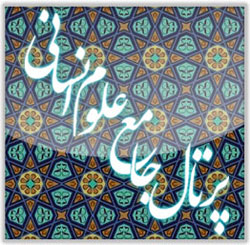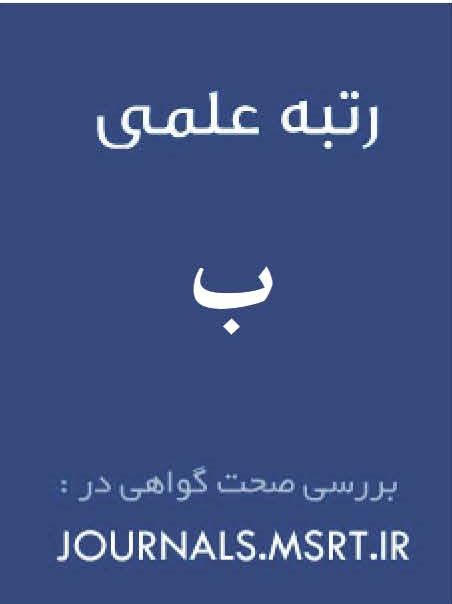Existentialism in the novel "The Scribes' Journeys"
Keywords:
Abutorab Khosravi, Asfar-e Kateban, Existentialism, Death, suffering, Magical Realism, Identity CrisisAbstract
Asfar-e Kateban by Abutorab Khosravi is one of the most significant philosophical narratives in contemporary Persian literature, employing multi-layered narration, magical realism, and intertextuality to explore fundamental existentialist questions within the cultural and historical context of Iran. This study, grounded in existentialist philosophy—particularly the perspectives of Kierkegaard, Sartre, and Jaspers—analyzes themes such as death, suffering, guilt, faith, and immortality in the novel. Boundary situations, including Azar’s death, Eqlima’s murder, and Ahmad Bashiri’s recurring nightmares, are represented as symbols of existential anxiety and dread, while Kierkegaard’s three stages of existence— aesthetic, ethical, and religious—are traceable in the destinies of the characters. Moreover, the novel’s use of magical realism dissolves the boundaries between reality and imagination, bringing the sacred, myth, and history into dialogue with contemporary reality. In doing so, the narrative creates an existential space where the crisis of individual and collective identity, the quest for immortality, and the confrontation with human freedom and responsibility are central concerns. The findings of this study suggest that Asfar-e Kateban is more than a literary narrative; it is a philosophical text that bridges Persian literature with global existentialist thought.
Downloads
References
1. Flynn T. Existentialism. Tehran: Basirat; 2011.
2. Kierkegaard S. The Concept of Anxiety. Isfahan: Nashr-e Porsesh; 2012.
3. Sartre JP. Existentialism and Humanism. Tehran: Niloufar; 2008.
4. Jaspers K. My Philosophical Autobiography. Tehran: Hermes; 2011.
5. Barrett W. What is Existentialism? Tehran: Agah; 1975.
6. Butler J. Jean-Paul Sartre. Tehran: Mahi; 2002.
7. Selden R. A Guide to Contemporary Literary Theory. Tehran: Tarh-e No; 2005.
8. Mousavi SK, Homayoun F. Existentialism in Hedayat and the impasse of nostalgia in “The Stray Dog”. Adab-Pajouhi. 2009;3(10):137-56.
9. Malmir T, Asadi Jouzayi H. Abutorab Kateb and the Subversion of Time. Sanandaj: University of Kurdistan; 2010.
10. Khosravi A. Asfar-e Kateban. Tehran: Ghesseh & Agah Publishing; 2004.
11. Hosseini S, Rafouei P. Tilework of the Scribe’s Palace: A Critique of Asfar-e Kateban. Tehran: Niloufar; 2003.
12. Lotfi Azizz M. Postmodernism in the Works of Abutorab Khosravi. —: [Unpublished master’s thesis]; 2013.
13. Payandeh H. Short Stories in Iran (Postmodern Fiction). Tehran: Niloufar; 2011.
14. Tasallomi A. Propositions in Contemporary Iranian Literature. Tehran: Ketab-e Aameh; 2009.
15. Macquarrie J. Existentialism. Tehran: Hermes; 1998.
16. Strathern P. Introducing Sartre. Tehran: Markaz; 2000.
17. Pourafkari N. Comprehensive Dictionary of Psychology and Psychiatry. Tehran: Farhang Moaser; 1997.
18. Aman Khani E, Hassanpour Alashti H. A study on the relationship between existentialism and literary criticism. Adabi Researches. 2007;4(17):9-34.
19. Hassanzadeh Dastjerdi A. An analysis of the novel Asfar-e Kateban based on the characteristics of modernist and postmodernist novel writing. Journal of Literary Criticism and Rhetoric. 2014;3(2):57-76.
20. Bastani Parizi ME. The Hero with a Seventeen-Man Mace (Shah Mansour). Tehran: Chakameh; 1986.
Downloads
Published
Submitted
Revised
Accepted
Issue
Section
License
Copyright (c) 2025 عباس آزادبخت (نویسنده); مسعود سپه وندی; فرشاد میرزایی مطلق (نویسنده)

This work is licensed under a Creative Commons Attribution-NonCommercial 4.0 International License.








